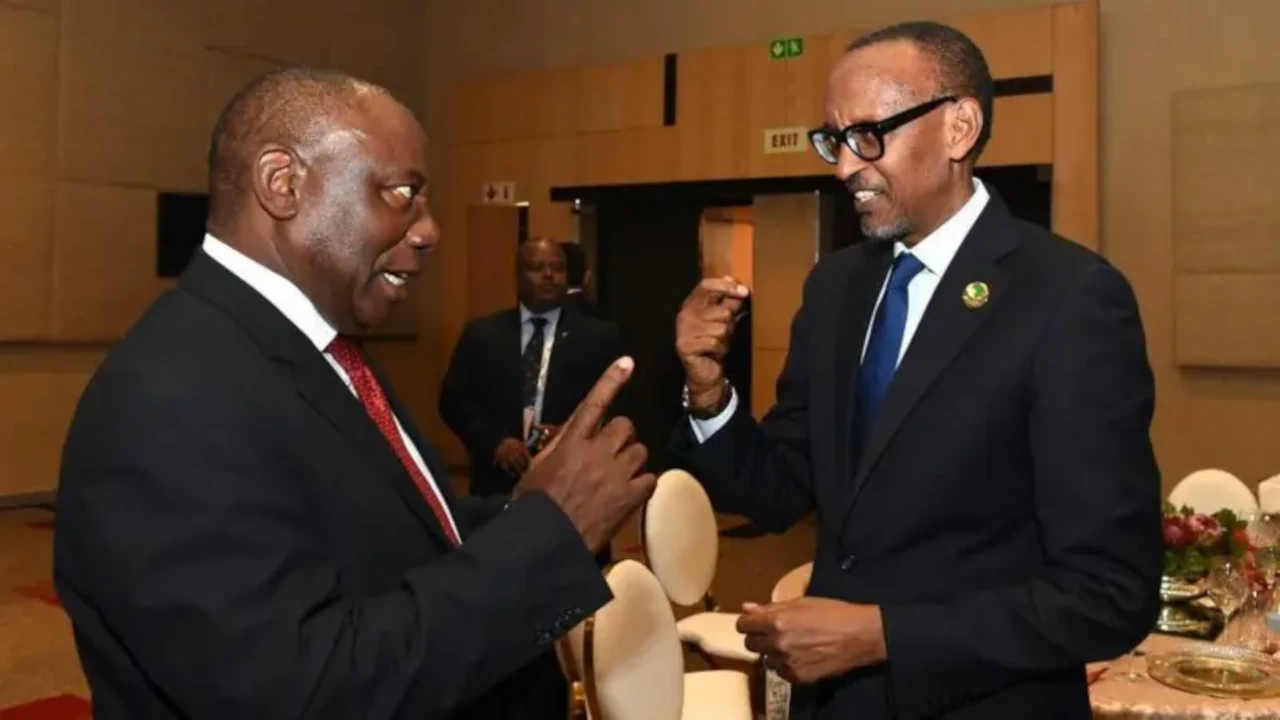Paul Kagame Warns South Africa: Rwanda Ready for Confrontation “Any Day” in Chilling Response
Rwanda’s President Paul Kagame has issued a stark warning to South Africa, declaring that his country is prepared for confrontation “any day.” This chilling statement comes in response to South African President Cyril Ramaphosa’s recent comments on the escalating conflict in the Democratic Republic of Congo (DRC). Kagame accused South Africa of distorting facts, spreading lies, and overstepping its role as a mediator in the crisis. The exchange has ignited a war of words between the two nations, raising fears of further instability in an already volatile region.
Kagame Fires Back: “Distortions, Attacks, and Lies”
In a series of tweets, Kagame directly addressed Ramaphosa’s claims, calling them misleading and accusing South African officials of misrepresenting their private conversations.
“What has been said about these conversations in the media by South African officials and President Ramaphosa himself contains a lot of distortion, deliberate attacks, and even lies,” Kagame wrote.
He emphasised that the Rwanda Defence Force (RDF) is a legitimate army, not a militia, and criticised the South African-led SAMIDRC force for engaging in offensive operations alongside groups like the FDLR, which Rwanda considers a genocidal threat.
“SAMIDRC is not a peacekeeping force. It was authorised by SADC as a belligerent force engaging in offensive combat operations to help the DRC Government fight against its own people,” Kagame stated.
Kagame also claimed that SAMIDRC’s presence displaced the East African Community Regional Force, a genuine peacekeeping mission, which he said contributed to the failure of negotiations. He further clarified that Ramaphosa never issued a warning to Rwanda during their conversations, unless it was delivered in a language Kagame did not understand.
“President Ramaphosa has never given a ‘warning’ of any kind, unless it was delivered in his local language which I do not understand,” Kagame quipped.
Ramaphosa Mourns Fallen Soldiers, Defends South Africa’s Role
Meanwhile, Ramaphosa mourned the loss of 13 South African soldiers in the DRC, blaming the M23 rebel group and the RDF for the escalation.
“We bow our heads in honour of their heroic and gallant fight for peace,” Ramaphosa tweeted.
He reiterated South Africa’s commitment to peacekeeping, denying that its military presence in the DRC is a declaration of war.
“South Africa’s military presence in the eastern DRC is not a declaration of war against any country or state,” Ramaphosa said.
Ramaphosa also expressed concern over the speculation surrounding the state of South African troops and the volatile conditions on the ground. He called on South Africans to rally behind their soldiers, who are part of both SADC and United Nations efforts to bring peace to the region.
“All South Africans must rally behind our brave men and women who have dedicated their lives to bringing peace in our continent,” he urged.
A Tense Standoff with Regional Implications
Kagame’s response has heightened tensions between the two nations. He accused South Africa of misrepresenting their conversations and questioned its ability to mediate in the conflict.
“If South Africa wants to contribute to peaceful solutions, that is well and good, but South Africa is in no position to take on the role of a peacemaker or mediator,” Kagame stated.
He also issued a stark warning, saying,
“If South Africa prefers confrontation, Rwanda will deal with the matter in that context any day.”
The exchange has sparked concerns over the stability of the region, with both leaders standing firm on their positions. Ramaphosa emphasised the need for diplomatic efforts, calling for an immediate end to hostilities and the resumption of peace talks under the Nairobi Process.
“We must silence the guns on our continent for the attainment of inclusive development and prosperity,” Ramaphosa said.
However, Kagame’s defiant tone suggests that Rwanda is unwilling to back down, raising the spectre of further escalation. The situation remains tense, with the international community closely watching developments in the region.

